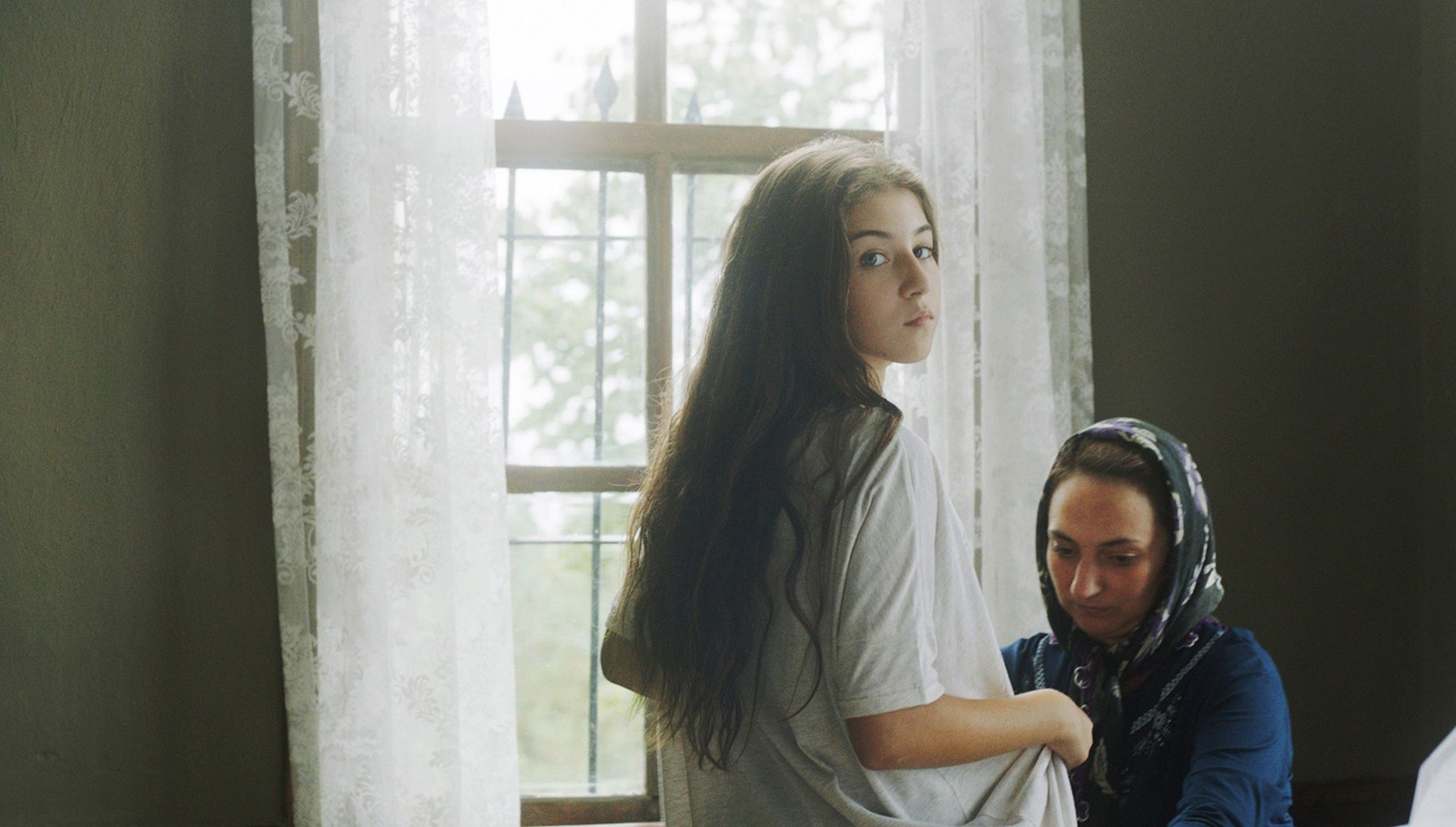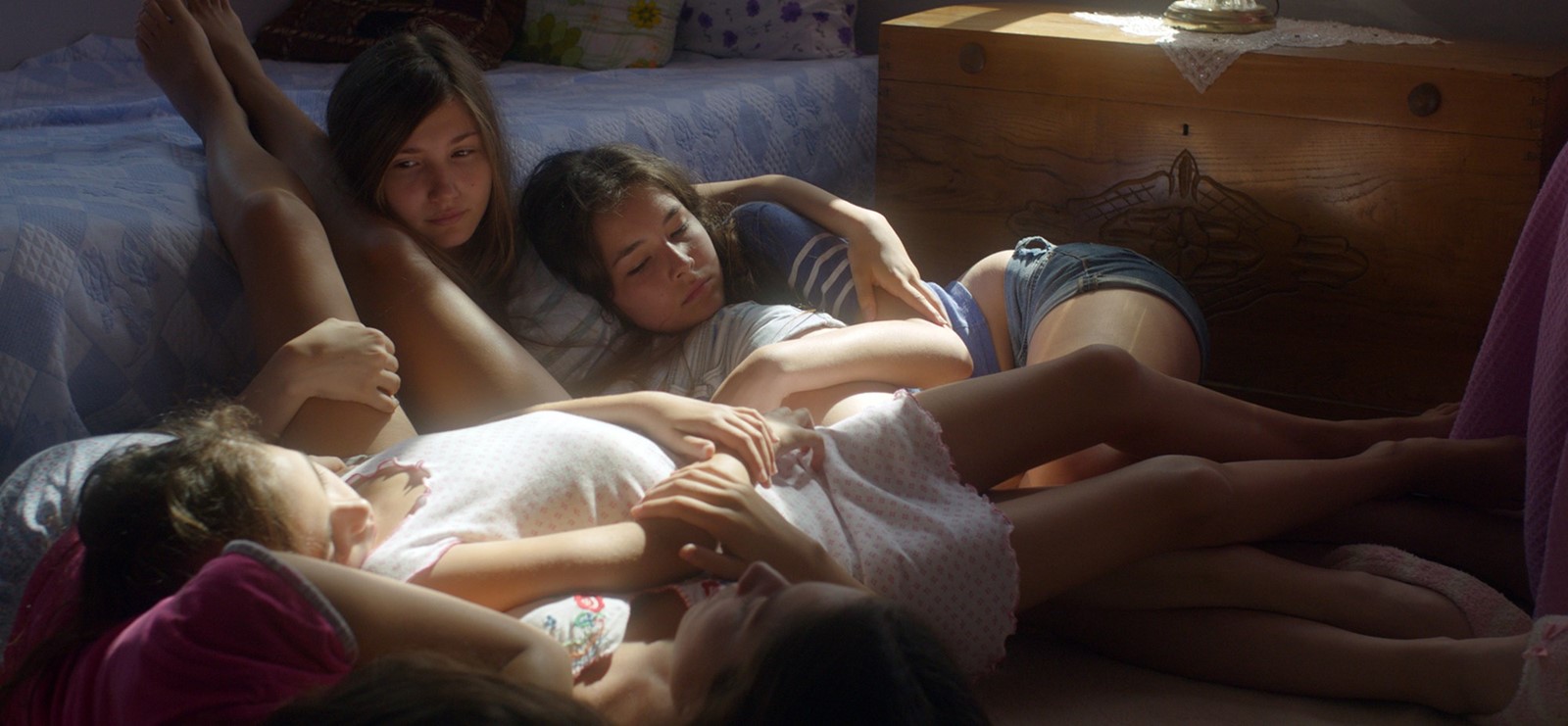When Turkish-born, French-raised director Deniz Gamze Ergüven met fellow writer and director Alice Winocour – at the Cinéfondation workshop in 2011, where both had been invited to develop their intended first features – she was, in her own words, close to "throwing in the towel." Ergüven was struggling to find funding for her project, Kings, a story set during the LA riots of 1992, and her frustration was mounting. Winocour suggested that she started with something smaller and more intimate, and Ergüven – who had already written the initial treatment for a tale of five young sisters, oppressed by their family in modern-day Turkey – sent it to her friend to read. Winocour was enraptured and the pair spent the summer of 2012 writing the script together: thus Mustang was born. Fast forward four years and, after multiple lows (a producer dropping out last minute, the line production company trying to cancel the shoot) and even more highs (multiple awards, an Oscar nomination, and rave reviews), the highly anticipated film finally lands in the UK this week.
There are myriad reasons why Mustang is being hailed by many as a contemporary masterpiece: from the vividly beguiling cinematography to the exquisite performances to the immersive soundtrack by Warren Ellis (of Nick Cave and the Bad Seeds), but perhaps what makes it most irresistible is the strength and sheer determination of its female protagonists. We are introduced to Lale, Nur, Selma, Ece and Sonay on their last day of school, the prospect of a long summer holiday stretching ahead of them. The girls are imbued with a free-spirited liveliness, sparkling eyes, and billowing golden brown locks. We watch as they frolick in the sea, clambering on the shoulders of their male schoolmates, all the while squabbling, screeching and giggling as young girls are prone to do. This simple act of innocent fun, however, proves detrimental to their existence. They return home to find that their strict grandmother has been alerted to their 'flagrant display of sexuality' by a nosy neighbour. Furious about the effect it will have on her orphaned granddaughters' reputation (and chances of marriage), she and their formidable uncle then set about restricting the girls' liberties to greater and greater extents.
"Everything that has anything to do with femininity [in Turkey] is constantly reduced to sexuality" – Deniz Gamze Ergüven
"I wanted to talk about what it's like to be a girl and a woman in modern-day Turkey, where the condition of women is more than ever a major public issue," Ergüven explained of her choice of theme for the film. "Every time I go back, I feel a form of constriction that surprises me. Everything that has anything to do with femininity is constantly reduced to sexuality." It was this subject matter, and the way that the characters respond to it, that appealed to the actresses she called upon as her leading ladies. As Elit Iscan, who plays the third eldest daughter Ece, and who was the only one of the young girls to have acted before, tells AnOther: "In Turkey, political figures, and especially men, are talking too much about what women should do and what they shouldn’t. The political speeches that you see in the film are real footage, and that situation is incredibly frustrating. When I read the script, I liked all of the characters so much because they were not acting in the way that was expected of them, they were rebellious. They were not shown as victims but as real characters who were helping themselves – not waiting for a man to come and save them."

Indeed, while some viewers have compared the film to Sofia Coppola's The Virgin Suicides, which has a similarly dreamy aesthetic and takes as its theme five sisters placed under house arrest, it is the reaction of the protagonists to their situations that differs so greatly. In Coppola's film the Lisbon sisters, deflated and depressed, sink into a deepening state of inertia, conveyed through the eyes of their male contemporaries (our narrators). In Mustang, the tale is one of defiance and emancipation, told from the point of view of Lale, the youngest and most feisty of the five. Ergüven watched various escape movies, such as A Man Escaped and Escape From Alcatraz while writing the script, and cites Pasolini's Salò, or the 120 Days of Sodom as a key influence "in terms of the way Pasolini tells the story of society grappling with fascism through the prism of a rather sordid tale."

The film is set in and around Inebolu in northern Turkey, the idyllic location – punctuated by long winding roads, open, sandy beaches and enclosed, looming forests – that comes to serve as an extension of the girls' domestic prison. The filming was a gruelling process – the cast and crew shot for twelve hours a day, six days a week in the boiling sun, trying to keep the politically subversive nature of the film secret from the local authorities. ("There's a scene where my character has sex in a car in the middle of a square, and the car was shaking, and all the people around us were looking at us, and everyone on set was getting quite stressed," Iscan recalls with a wry smile.) To top it off, Ergüven was pregnant during the shoot, having to struggle against various prejudices imposed upon her by peripheral members of the production team, who didn't believe she could cope with the pressures of filming. "She is such a strong woman," Iscan says proudly of the director with whom she and her fellow cast members went on to form an indelible bond. "She didn't let the fact that she was pregnant change anything at all although of course, it made her more emotional. Sometimes she started crying while she was watching us, and I start to cry when I see people cry, so we were all crying at the same time. But that also happened at funny moments, and we'd all laugh until we cried!"

The sense of trust and security that Ergüven cultivated on set is clearly a huge reason for the success of the film, which is carried by the exceptional performances she drew out of the actresses. There is a devastating honesty in the emotions conveyed by each heroine in their individual response to their situation that resonates with you long after leaving the cinema. "We've received lots of messages on Facebook and Twitter and Instagram, from people telling us that they really loved the film and it's just like their own story," Iscan says. "Not just young people, but old people too, coming from very different backgrounds – from China to the USA, from France to Russia – and they often said they saw something of themselves in one of our specific characters. It really gave us a lot of motivation as actresses and a pride in what we've achieved." However, she explains, the negative reactions that the film received from certain parties in Turkey proved just as important a measure of the film's success. "The fact that some people didn't like the film at all in Turkey, I’m happy about that too, because it means that we disturbed them, that we made them think. And that's another sign that we've done a good job."
Mustang is in cinemas nationwide from May 13, 2016.
